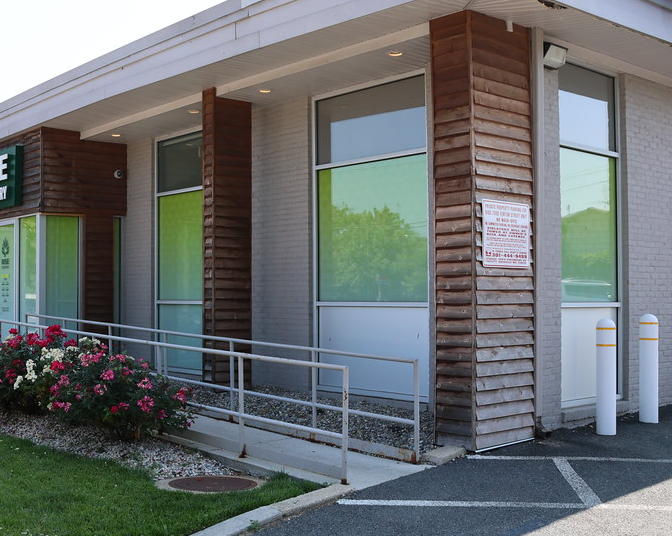Los Angeles cannabis businesses just took another financial hit, and this time it’s coming straight from City Hall. On Tuesday, the City Council approved sweeping fee increases across the marijuana industry—sparking outrage and concern among operators already stretched thin by falling sales and rising overheads.
Licensing, inspection, and compliance fees are all going up. And not by a little. We’re talking tens or even hundreds of thousands of dollars more per year, depending on the size and nature of the operation.
“There’s Nowhere to Pull the Money From,” Say Business Owners
Luis Rivera runs a small marijuana delivery service in Sun Valley. He doesn’t mince words.
“The fees will be disastrous,” he told the Los Angeles Times. And he’s not alone. Across the city, small and midsize cannabis entrepreneurs are fuming.
For many, these increases aren’t just inconvenient—they’re existential.
In recent years, legal operators have struggled to keep pace with a thriving illicit market, regulatory red tape, and heavy state taxes. Now, this added layer of city-imposed costs could be the final straw.
“It’s like getting taxed for breathing,” said one dispensary owner in Koreatown. “We’re doing our best to stay compliant, pay workers, follow the rules—and now this.”
One operator estimated their renewal fees would jump from $10,000 to nearly $60,000. “We’re not Apple,” they said. “We don’t have that kind of margin.”

Why Is the City Doing This Now?
City officials argue they’re not trying to cripple the industry. They’re trying to stay afloat.
Cannabis tax revenues are slipping. People simply aren’t buying like they used to. Prices have fallen. Supply has grown. And consumers are increasingly turning to cheaper, unlicensed sellers who don’t pay taxes or fees.
In response, the Department of Cannabis Regulation (DCR) proposed adjusting its cost-recovery model. That’s policy speak for: we’re charging businesses more to cover our operating costs.
According to city documents, the DCR collected significantly less revenue last fiscal year than anticipated. Maintaining enforcement, licensing reviews, and site inspections wasn’t cheap—and the shortfall needed to be addressed.
Still, critics say the timing couldn’t be worse.
• Sales across California’s legal market dropped nearly 8% in 2024
• Illegal sellers outnumber legal operators by more than 3 to 1 in L.A.
• Over 100 licensed businesses have closed shop in the past 18 months
“The city’s response to declining revenue shouldn’t be to squeeze the few legitimate players still standing,” said attorney Megan Cooper, who represents several dispensaries. “It’s a short-sighted move.”
Here’s a Snapshot of the New Fees
Some of the most significant changes include:
| Fee Type | Old Cost | New Cost | % Increase |
|---|---|---|---|
| Retail License Renewal | $4,030 | $9,150 | +127% |
| Annual DCR Compliance Review | $6,850 | $13,200 | +93% |
| Pre-License Inspection | $3,100 | $6,800 | +119% |
| Delivery Business Renewal | $2,800 | $7,400 | +164% |
| Testing Lab Annual Review | $8,950 | $17,300 | +93% |
“We’re being punished for being legitimate,” said one grower in South L.A., who requested anonymity. “The illegal guys pay nothing and face no consequences.”
A System That Favours the Illicit Market?
There’s growing consensus that city and state policies—intended to regulate and protect—may be backfiring.
California’s illicit cannabis market is booming. Estimates peg the illegal share at more than 60% of total sales statewide. In L.A., it’s even worse.
Legal operators face constant hurdles:
-
State and local taxes can reach 35% combined
-
Security requirements, tracking systems, and inventory audits eat time and money
-
Regulatory compliance costs (now rising) chip away at profits
Meanwhile, unlicensed shops pop up faster than enforcement can shut them down. And consumers keep buying—because the product’s cheaper, and often just as good.
“You’ve got one side operating like it’s 1998, and the other trapped in paperwork and inspections,” said one frustrated edibles manufacturer. “Guess who’s winning?”
Council Response: “It’s About Long-Term Stability”
City leaders aren’t backing down. Councilmember Marqueece Harris-Dawson said during Tuesday’s meeting that the updated fee structure is meant to “ensure fairness and sustainability in the regulatory system.”
That may sound reasonable, but it’s not resonating with businesses gasping for air.
The city insists it consulted industry stakeholders, but multiple business owners claim they were caught off guard. “No warning. No public workshops. Just a vote,” one said.
Others see the move as tone-deaf. “We’re laying people off. We’re taking out loans to stay open. And they think now’s a good time to double fees?” asked the owner of a Westside dispensary.
Still, the measure passed with an overwhelming majority.
Could This Backfire on the City?
There’s a real risk the policy could reduce—not raise—revenue in the long term.
Experts warn that piling more fees on already fragile businesses could push more into default, bankruptcy, or back into the shadows. If even a small portion of licensees close or downsize, the city could wind up collecting even less than before.
“It’s death by a thousand cuts,” said a former DCR staffer who asked not to be named. “They’re trying to plug a hole in the boat with bricks.”
While some of the city’s larger cannabis players may be able to absorb the blow, small operators will likely bear the brunt. And with them, local jobs, community reinvestment, and economic diversity could disappear.
This isn’t just a business story. It’s a policy crisis with human consequences. And for many in L.A.’s legal cannabis industry, Tuesday’s vote could be remembered as the day the tide turned against them.
